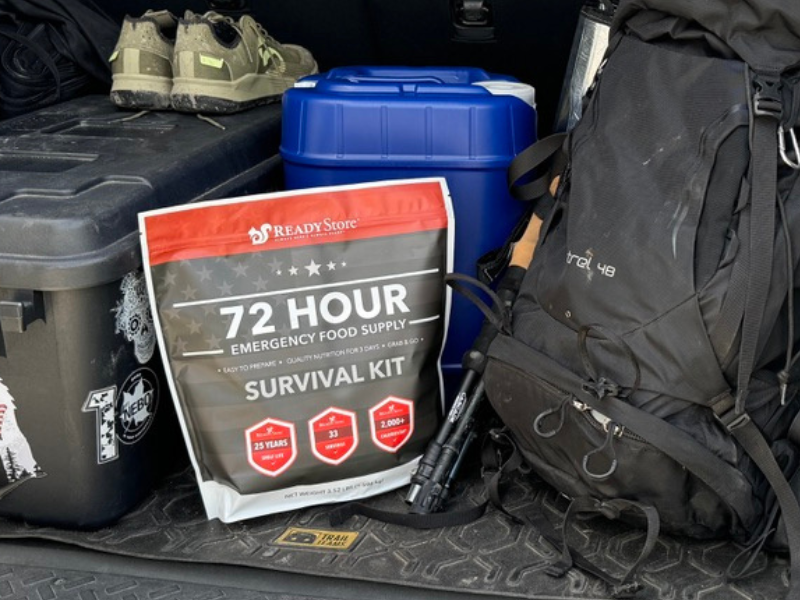As winter begins, it’s essential to prepare your vehicle with a Winter Survival Kit. While many items in a standard 72-hour emergency kit are useful, winter travel brings specific challenges like extreme weather and the potential for long delays. If you’re traveling to see friends and family this holiday season, here’s a list of essential items to have in your car for winter safety.
Winter Survival Kit Car Checklist
- Thick Blanket or Sleeping Bag – Ideally, have one for each seat. If space is limited, pack space blankets for insulation.
- Flashlight & Radio – Bring extra batteries or a rechargeable flashlight.
- Extra Winter Clothing – Include boots, gloves, jackets, and beanies, packed in a waterproof bag. Vacuum-sealing can help save space.
- First-Aid Kit – In addition to basics, bring any required medications.
- Heat Source – Pack hand warmers and small candles to help prevent frostbite.
- High-Calorie/Energy Food – Snacks keep you fueled if you’re waiting for help or digging out your car.
- Water Pouches – Bring enough water for each person in the car.
- Road Salt, Cat Litter, or Sand – A small sack provides traction in slippery conditions.
- Basic Tool Kit – Essentials like pliers, screwdrivers, and an adjustable wrench are helpful year-round.
- Tow Chain/Strap – If you’re stuck, a tow chain allows another vehicle to assist.
- Road Flares and Reflectors – Use road flares, lightsticks, and reflectors to signal for help, or tie a neon fabric piece to your car.
- Tire Chains – Carry chains if driving in areas where they are recommended.
- Ice Scraper/Snow Brush – Keep your windshield clear of snow and ice.
- Collapsible Shovel – Handy for digging out if you’re stuck in snow.
- Jumper Cables – Essential for helping start your vehicle or assisting others.
Tips for Traveling During the Winter
- Check weather and road conditions for all stops along your route.
- Allow extra travel time to account for delays.
- Dress warmly for winter conditions.
- Start your journey with a full gas tank, and try not to go below half a tank.
- Keep a car charger for your phone.
- Inform someone of your travel route and update them whenever possible.
- If you have cell service and need help, call 911.
- Stay inside your car during a snowstorm to avoid the risk of hypothermia or getting lost.
- Avoid long travel periods—know your limits.
- When digging out of snow, avoid overexertion to prevent sweat, which can lead to hypothermia.
- If stuck in a snowstorm, it’s better to be cold and alert than comfortably warm and drowsy.













